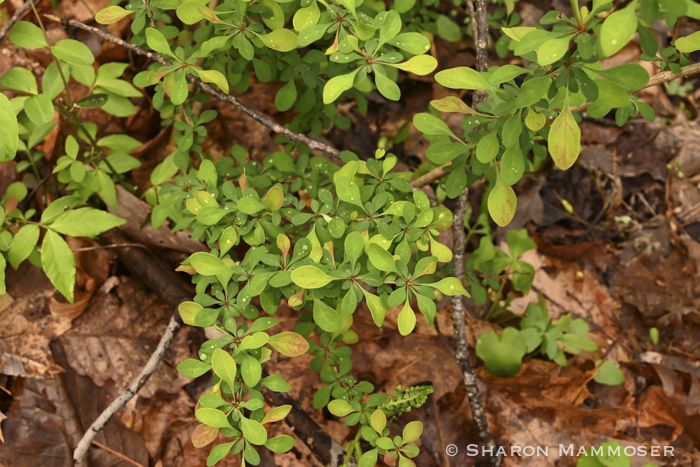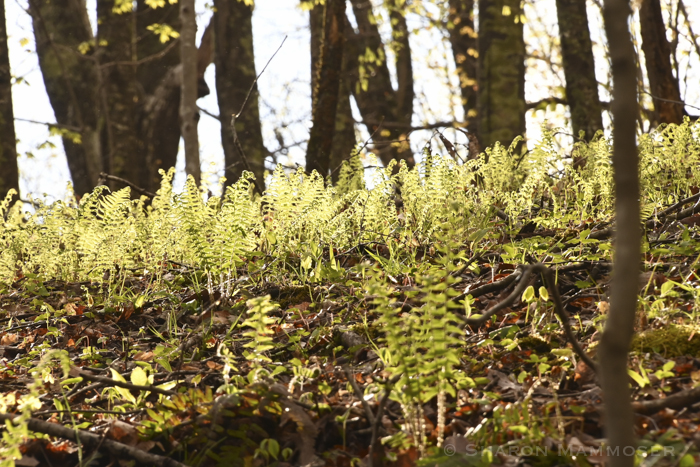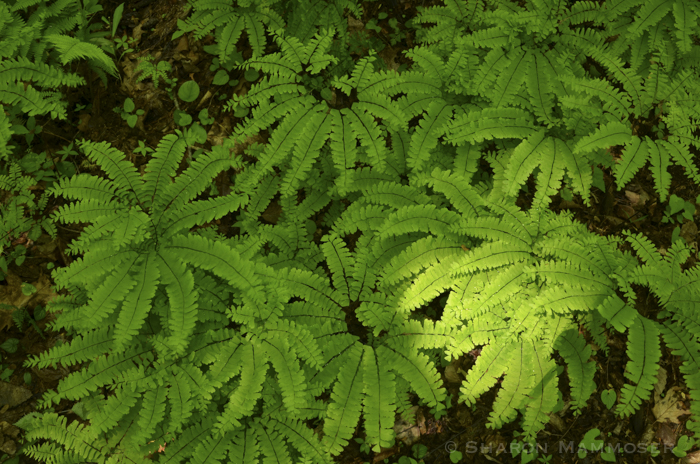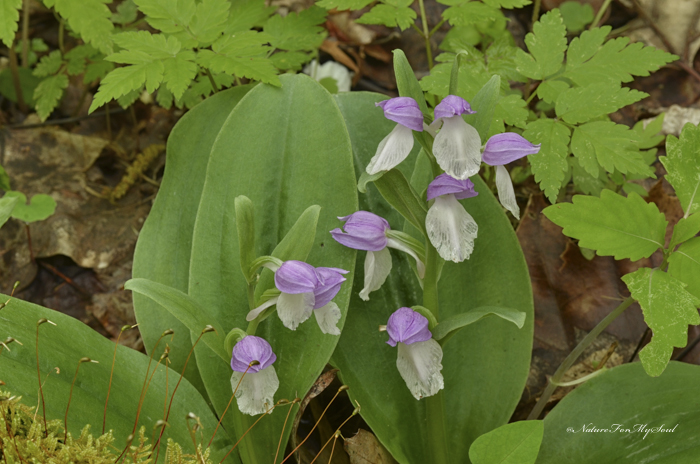The small shrub from last week’s puzzler was Japanese Barberry, Berberis thunbergii.
It is non-native, invasive, yet common shrub used in landscaping–it’s hard to go down any road in any neighborhood and not see it growing neatly in gardens everywhere. But it is anything but neat as the birds eagerly eat the red berries and of course in doing so, transport the seeds far away from the original source. Like other invasive plants it does not stay in the places where it is planted. Some states have banned the sale of this plant. It is native to China and Japan and was introduced to the United States as an ornamental in the 1800’s.

This shrub grows from 2 to 8 feet tall with small oval shaped leaves that are often reddish, or purplish. Not surprisingly given the thorns on the branches, deer don’t eat this so it has a huge advantage when it winds up growing in the woods instead of the garden. Like Oriental Bittersweet, its seeds have a high germination rate, upwards of 90%, a fact that makes it easy to see how it spreads so quickly.

At my house here in western North Carolina I am finding Barberry bushes throughout the woods on our 17 acres, even though I have gotten rid of it from immediately around the buildings. When I come across it in the woods it is harder because I don’t normally carry gloves with me and it is hard to pull it out without them. I sometimes feel like it is an endless battle to stop the invasives from taking over–especially Oriental Bittersweet, English Ivy, Japanese Barberry, Japanese Stilt Grass, among others. If left unchecked these plants will displace the native plants that make the woods so attractive in the first place—ferns, spring ephemerals, and all of the flowers and vegetation that make up the forest carpet.


Are you dealing with invasive plants where you live? How do you stay ahead of them?
Ready for another puzzler? This one is a vine with star-shaped leaves and clinging, twirling tendrils.


We have ivy everywhere in our development.
Just try to contain the spread and cut it off the trees.
Jock, yes I guess that’s the best we can all do. Every little bit helps I’m sure.